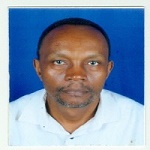 Prof. Mwaseba has won a new four-year project funded by the Norwegian Research Council (NFR) titled ECOFOOD: Creating inclusive and sustainable food systems in refugee hosting contexts in Sub-Saharan Africa (SSA). The project will be located in refugee hosting areas in northern Uganda and north-western Tanzania. The primary objective of the project is to assess strategies for facilitating the inclusion of small-scale food producers in the food systems in refugee hosting contexts. Details of the project are provided below:
Prof. Mwaseba has won a new four-year project funded by the Norwegian Research Council (NFR) titled ECOFOOD: Creating inclusive and sustainable food systems in refugee hosting contexts in Sub-Saharan Africa (SSA). The project will be located in refugee hosting areas in northern Uganda and north-western Tanzania. The primary objective of the project is to assess strategies for facilitating the inclusion of small-scale food producers in the food systems in refugee hosting contexts. Details of the project are provided below:
Project title: ECOFOOD: Creating Inclusive and Sustainable Food Systems in Refugee Hosting Contexts in Sub-Saharan Africa (SSA)
Project areas/cases: Tanzania and Uganda
Funding organisation: The Norwegian Research Council
Project period: 2023 to 2026
Partners
- Ruralis- Institute for Research and Regional Research, Norway
- Sokoine University of Agriculture, Tanzania,
- Norwegian University of Life Sciences (NMBU)
- Gulu University, Uganda
- Western Norway University of Applied Sciences
Objective and research questions
The primary objective of ECOFOOD is to assess strategies for facilitating the inclusion of small-scale food producers in the food system and to enhance food and nutrition security for women and children, climate resilience and biodiversity conservation in refugee-hosting contexts.
With a specific focus on women and youth small-scale food producers in refugee hosting contexts, ECOFOOD will answer the following research questions ECOFOOD will answer the following research questions:
❖ Who are the main actors and what are the main features, opportunities and challenges facing the food systems in a refugee hosting context?
❖ What are the major opportunities and constraints for the effective transfer of innovative and climate resilient practices to women and youth small-scale food producers and their sustainable inclusion in the food system?
❖ In what ways does protracted displacement influence the capabilities, endowments, and entitlements for farm production and consumption?
❖ Which prerequisites must be in place for access to agricultural resources to lead to better nutritional, climate resilience and biodiversity outcomes?
❖ How can agricultural in general and environmental policies and interventions foster the inclusion of women and youth small-scale food producers in refugee-hosting contexts?
